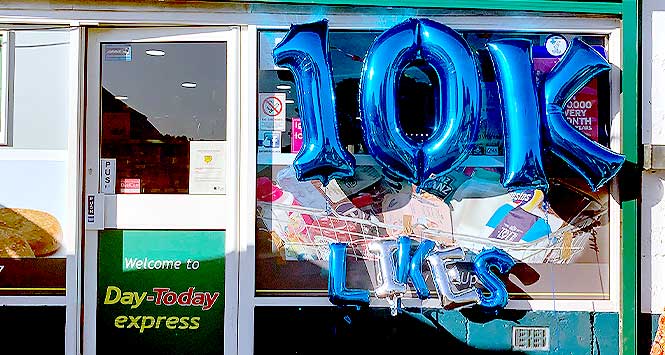On the eve of the Chancellor’s Autumn Statement, the British Retail Consortium wrote to George Osbourne to demand a better deal for retailers. Here, the Consortium’s outgoing Director General explains what it wants from the Government.
by Stephen Robertson
When I wrote to the Chancellor, George Osbourne, the purpose was to set out the retail sector’s key priorities for the economy in advance of his Autumn Statement. The priorities which we have identified are designed to enable us to continue to make the greatest possible contribution to the economic recovery. We remain committed to maintaining and creating high quality jobs, to giving customers excellent value and to playing a crucial role in supporting successful, vibrant communities across the UK.
The challenges facing us remain very significant: consumer confidence is stubbornly weak, sales growth is flat and costs continue to rise rapidly. Consequently we asked him to focus on a small number of concrete measures to support our industry and the UK economy as a whole. Retailers, and business more widely, need certainty and consistency to maximise our contribution to the recovery.
Our detailed consultation with retailers identifies the following priorities:
- Freezing Business Rates in April 2013, recognising the exceptional increases that have applied in April 2011 and April 2012
- Reforming the Carbon Reduction Commitment (CRC) Energy Efficiency Scheme
- Abandoning the planned increases in fuel duty to support hard-pressed consumers and businesses
- Permitting a one year National Insurance Contributions (NIC) holiday for all employers taking on a young person
- Ensuring that National Minimum Wage (NMW) increases remain at affordable levels and do not exceed long-term movements in average earnings
- Reinvesting the proceeds of the forthcoming 4G auction in the roll-out of high-speed broadband.
Consumer confidence remains close to the record lows of 2008. Credit conditions remain tight for many households, causing consumers to become increasingly risk averse. The housing market is also showing little sign of growth, with market conditions virtually unchanged since late 2010. The squeeze on real disposable incomes has persisted for almost three years and the impact on non-discretionary spending has intensified recently. Although the recent fall in inflation has eased the pressure on households’ budgets considerably, the backdrop of three consecutive quarters of negative growth in consumer spending demonstrates an uncertain outlook for both consumers and retailers.
Against this backdrop of subdued consumer demand, rising costs and highly competitive pricing have squeezed margins, meaning that many retailers have struggled to remain profitable. On average, one in nine shops in UK town centres lie empty but this masks huge variations. Some town centres have recorded vacancy rates of over 40%. Empty shops are perhaps one of the most visible impacts of the downturn. High streets with large numbers of empty shops are likely to reinforce further falling consumer confidence. This may in turn lead to increasingly conservative spending habits, falling retail spend and higher vacancy rates – a dangerous self-perpetuating cycle.
Risks to the retail sector remain on the downside. Although falling inflation is easing the squeeze on disposable incomes, confidence among consumers remains weak. Even if real incomes start to rise in the fourth quarter of the year, households are still heavily indebted and likely to continue to deleverage in the face of such economic turbulence, holding back consumer spending. Retail sales are expected to continue to struggle for some time to come.
The Government anticipates a windfall of up to £4bn from the sale of the 4G mobile–phone spectrum. These proceeds should be used to accelerate the roll-out of high-speed broadband and deliver much needed investment in key infrastructure to support the UK economy. It is anticipated that 4G services will boost the UK’s economy by around £2-3bn, creating jobs and encouraging investment. Using the proceeds of the sale to invest in the UKs broadband capacity will generate even greater revenues and improve the UK’s fiscal position.
In closing I asked the Chancellor to give precedence to these practical measures to get Britain’s economy back into growth, re-establishing confidence, reducing youth unemployment, investing in essential infrastructure and expanding export opportunities.







